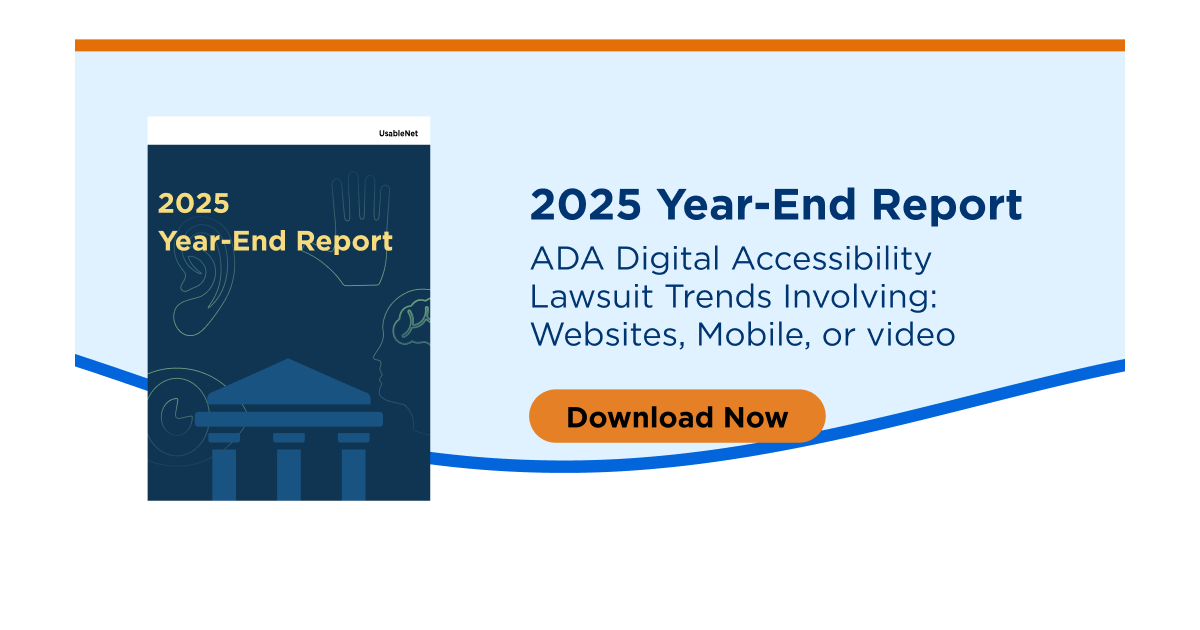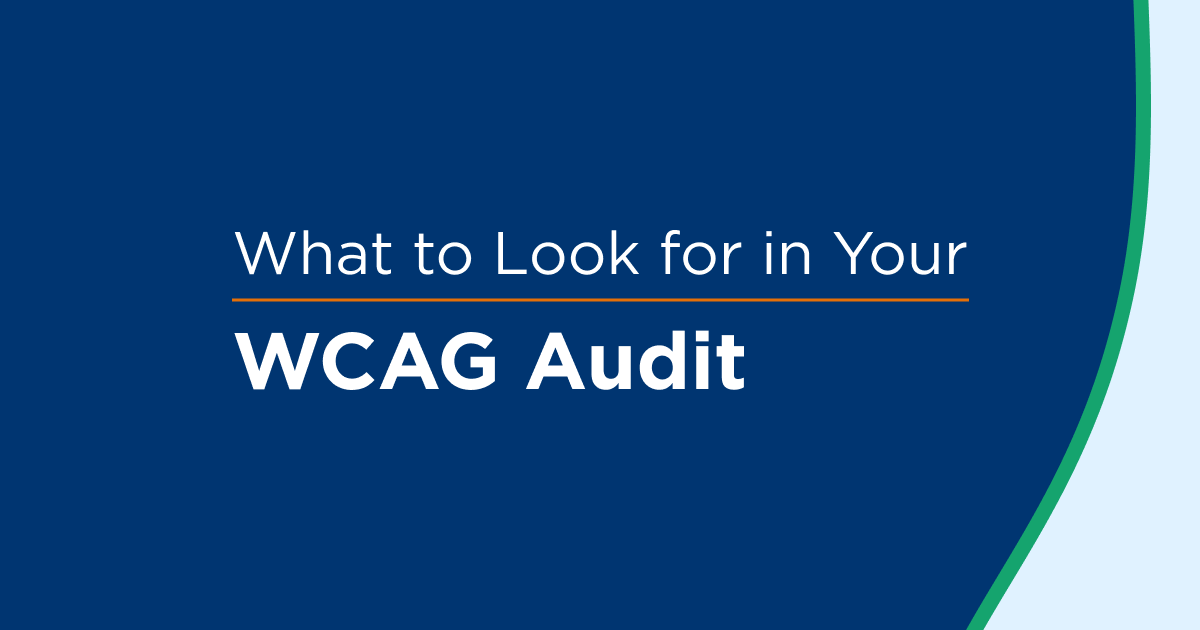Big news broke on Monday for people with disabilities, disability rights advocates and any business with a Website or doing business online or via mobile apps.
The US Supreme Court denied Domino's petition to hear the case of Domino’s Pizza LLC. v. Guillermo Robles. The case started when Plaintiff Guillermo Robles, a man who has has a visual disability, brought an ADA-based Website lawsuit against Domino's after he was unable to order food on the company's website and mobile app with his assistive technology.
Domino's wanted the Supreme Court to review the 9th Circuit's decision. But now, the 9th Circuit's decision that Domino's Website and App must be accessible will remain in place. This is good news for people with disabilities bringing claims that other websites and apps are not accessible.
From a business or website owner perspective, we hope the news gives executives and advocates the business case they need to start to bring their websites and mobile apps into ADA Compliance. The lawsuits will likely only increase.
We've discussed this case before but now we share the reactions from around the Web and our take on what the denial means for Website Accessibility and ADA Website lawsuits.
Reactions Around the Web
"Supreme Court Won't Hear Domino's Pizza Website Access Dispute," Bloomberg News explains in the expert below.
The case could help determine the extent to which businesses must make their websites and apps accessible to the blind and visually impaired—a question that’s at the center of hundreds of federal complaints every year. Plaintiffs have filed nearly 600 website accessibility complaints this year under the ADA against companies such as Activision Blizzard Inc. and Ralph Lauren Corp., according to Bloomberg Law data.
Courts have split over whether the ADA applies to websites. The Justice Department hasn’t issued regulations clarifying companies’ online accessibility obligations under the law.
Many headlines called the decision a win for the people like USA Today who declared, "Victory for disability advocates: Supreme Court won't hear Domino's Pizza accessibility case."
Prominent Disability Rights Attorney Lainey Feingold agreed when sharing the news on Twitter and linking to her popular blog with previous recaps of the case.
"Big court win today for digital accessibility. Ninth Circuit federal Court of Appeals (U.S.) rules for #blind plaintiff in Domino's Pizza case. Another court says ADA covers web and mobile."
News outlets also focused on the potential blow to Domino's and other businesses who are often caught unaware when they receive an ADA Website lawsuit.
"Supreme Court Allows Blind People to Sue Retailers if their Websites are not Accessible," declared a headline in the Los Angeles Times that was picked up by several other outlets.
Last year retailers made up 38% of suits and early data from 2019 shows this trend continues, with retailers being more likely to be sued multiple times. (If you are concerned about ADA Compliance; Download UsableNet's guide to Accessibility for Retailers here).
The Los Angeles Times article by Staff Writer, David Savage, shares reactions from all sides.
Joseph R. Manning Jr., a Newport Beach lawyer who represented Robles, said the high court made “the right call. There can be no debate that the blind and visually impaired require accessible websites and mobile apps to function on an equal footing in the modern world.”
Mark Whitley, president of Easterseals Southern California, praised the high court for “supporting the values ... the ADA was built upon.”
Domino’s and the National Retail Federation issued statements saying they were disappointed in the court’s refusal to hear the case. The 9th Circuit sent the case back to a district judge in Los Angeles to decide whether Robles suffered discrimination.
“We look forward to presenting our case at the trial court. We also remain steadfast in our belief in the need for federal standards for everyone to follow in making their websites and mobile apps accessible,” Domino’s said its statement.
What happens now? UsableNet's Take.
- More plaintiffs and new advocates celebrating this week may be energized. This case raises awareness and enthusiasm about making big companies build or remedy their Websites to comply with the ADA.
-
Companies may add accessibility clauses to contracts and RFPs with Website creators and vendors. Many companies outsource Website design and they may now try to also outsource the responsibility of making sure their Website is ADA compliant.
-
Platforms such as Shopify will be under added pressure to delivery accessible templates and features to ensure partner Websites are accessible. Already a Shopify or thinking about becoming one but not sure how to ensure your Website is still accessible? Read How Soludos Leveraged UsableNet Assistive to Make Its Shopify Website ADA Accessible.
- Greater Accessibility Online! We hope this ruling will prompt companies that were taking a "Wait and See" approach to start their accessibility journey. If you're not sure where to start, my E-book, ‘Your Roadmap to Digital Inclusion’ is made up of four instructive chapters, focused on the resource considerations for each stage of a typical digital accessibility program and how to integrate the disability community across your program.
What's your take? Tweet @Usablenet, let us know in the comments below, or contact us to chat with an Accessibility Expert.









